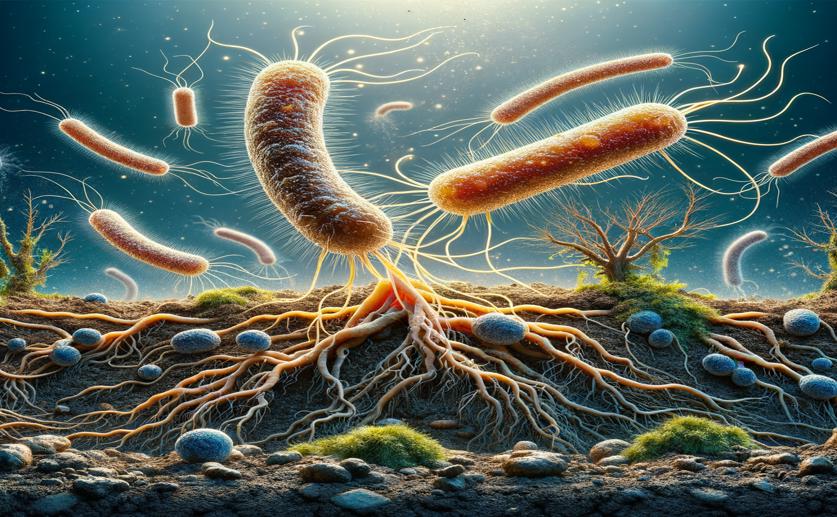
Harnessing Beneficial Soil Bacteria to Manage Invasive Weeds
Jim Crocker
22nd May, 2024

Image Source: Natural Science News, 2024
Key Findings
- Leiden University researchers studied how bacterial volatiles affect plant growth and defense
- They found that bacterial volatiles can significantly impact plant growth, ranging from plant death to a sixfold increase in biomass
- Certain bacterial volatiles can inhibit plant defense responses, potentially benefiting agricultural productivity
AgricultureBiochemPlant Science
References
Main Study
1) Exploring the potential of root-associated bacteria to control an outbreak weed
Published 21st May, 2024
https://doi.org/10.1007/s11104-024-06726-3
Related Studies
2) Root phenotypes as modulators of microbial microhabitats.
3) Production of plant growth modulating volatiles is widespread among rhizosphere bacteria and strongly depends on culture conditions.
4) Scale-dependent effects of nonnative plant invasion on host-seeking tick abundance.
Journal: Ecosphere (Washington, D.C), Issue: Vol 7, Issue 3, Mar 2016



 19th May, 2024 | Jenn Hoskins
19th May, 2024 | Jenn Hoskins